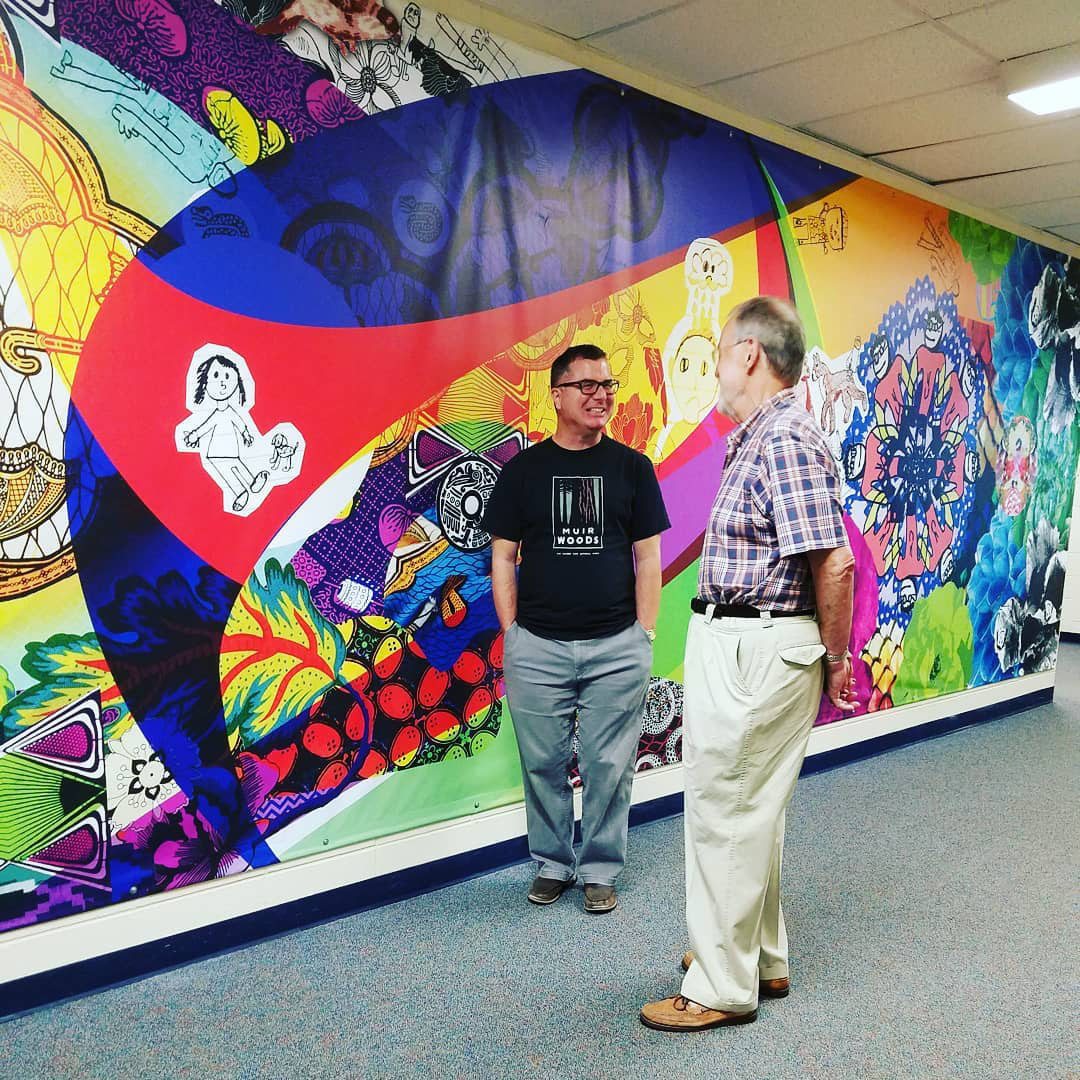Holding both a Master's of Art Education and a Bachelor of Fine Arts from Herron School of Art and Design, Eric Sutton has used his education to help others further their own. He currently works as an art teacher at Loper Elementary in Shelbyville, Indiana, while also being an adjunct instructor at Herron.
Sutton states that "warmth and kindness cannot be underestimated" when teaching, and exemplifies this in everything he does. For example, he recently received the Golden Apple Award, given to teachers who go the extra mile for their students. He was also nominated for Arts for Learning's Fresh StART program, which allowed him to work with Herron adjunct instructor Artur Silva to construct a mural in Loper Elementary.
Here, Sutton discusses how he gained this outlook on teaching, personal role models, and more.
HERRON: You have an extensive educational background in art from Herron and went on to become a teacher yourself. How did your time at Herron help prepare you for the challenges of teaching?
SUTTON: At Herron, I learned to be a successful artist and how it takes absolute dedication, perseverance, and hard work. These are also the attributes of a good teacher. The happiest people on earth are the ones who have a purpose in life. I also learned from my professor of design theory at Herron, Ms. Stanley Burford, that warmth and kindness cannot be overestimated when working with students of any age.
HERRON: Do you have a specific teaching philosophy?
SUTTON: My philosophy is "Kindness First and Foremost." Former first lady Eleanor Roosevelt said that if any formal rule is manifestly unkind to any individual, forget it, and be kind instead. Those words rang true to me and inspired me. Students may not remember a specific skill that you teach them, but they remember how you make them feel.
HERRON: What can we learn from art as an academic discipline?
SUTTON: The quote, "Art touches not only the MIND, but also the SOUL" resonates with me. Art as an academic discipline goes back beyond classical Greece, and it deals with intangibles and ephemerals. Creativity and expression are at the core of the arts and in art classes it becomes a primary focus. However, it is very difficult to teach creativity, but it is extremely important for success in life. So, the work we do as art teachers can have an impact on every person’s life beyond our classrooms.
HERRON: As an art teacher at Loper Elementary, you were involved in the Fresh StART program enacted there. What is Fresh StART and how did it change Loper Elementary?
SUTTON: Fresh StART is a program through Arts for Learning, and their goal is to transform an unused space in a school – whether interior or exterior – with the visual arts. My principal and I decided that we wanted to transform a large cinder block wall in the interior of the school. Since bullying and children's suicide is an issue that is very important to me, I wanted to add a work of art that might speak to the children about those themes. I was bullied in middle school and high school as a young gay student. Although my school doesn't have a bad problem with these kinds of issues, it's still important for everyone to think about. I decided that I wanted the theme of "Kindness and Empathy" to be the main concept for a large mural to go onto the blank wall.
Visiting artists that work in both poetry and storytelling came and worked with my students for two days. The children created their own poems and narratives while working with the visiting artists from Arts for Learning. In their office space they have a beautiful mural by the artist, Artur Silva, who also is an adjunct faculty member at Herron. I really loved all aspects of Silva's artwork and had my heart set on him to create the piece. Through some serendipitous coincidences, everything came together and Artur Silva created the mural using the students' drawings and poems as his inspiration for the work.
Loper Elementary School now has a very important contemporary piece of artwork in the building entitled "Beyond Tolerance" and it is a powerful work of art. The students love taking pictures in front of it because it's so colorful and detailed. The beauty and color of the piece brings joy and pleasure to the students that see it every day.



